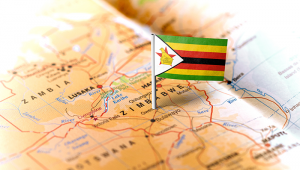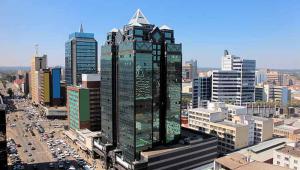The bank said that the fundamentals for Zimbabwe’s recovery and stabilisation following dollarization from 2009-14 have been and continue to be strong, however the country will need to correct macroeconomic imbalances to meet challenges posed by external conditions, drought and weak trade.
Guang Chen, World Bank country director for Zimbabwe, said the bank’s twin goals of eliminating extreme poverty and increasing shared prosperity are relevant for Zimbabwe today, and that the bank would work to help Zimbabwe face the coming headwinds and ensure that growth is pro-poor.
The bank said that its outlook for the country for 2016 is difficult, with growth projected to remain around 1.5%. Growth has slowed sharply in the country since 2012 as the impact of dollarization ran its course.
The economy’s vulnerability to trade and climate shocks has resurfaced, with a severe drought in 2015 taking its toll.
The issues for Zimbabwe’s economy include challenges posed to traditional sectors such as agriculture and mining that have arisen in the process of structural transformation, external conditions including a slowdown in the global economy, depressed commodity prices and deterioration in trade with China.
The impact of the El Niño weather pattern, which causes both heavy rains and droughts around the world, has also been felt in Zimbabwe’s agriculture, water and power sectors.
Earlier today, Zimbabwe president Robert Mugabe declared a state of disaster in rural areas hit by severe drought, as over 26% of the country’s population, or 2.44 million people, are food insecure. Cattle are dying in the tens of thousands, reservoirs are running dry and crops have been decimated.
The bank said that recent growth has been driven largely by consumption, while public and private investments have fallen since 2011. Capital flows are sustaining consumption by financing an unsustainably high current account deficit.
Without exchange rate policy, tackling this “will require real improvements in productivity and adjustments in public spending”, the bank said.
Poor households are likely to feel the impact of headwinds and economic corrections most deeply, the bank added. Improvements to the allocation and efficiency of public spending will be necessary to prevent a regressive recovery that increases inequality.
The World Bank’s report, its first Zimbabwe Economic Update, also examined key developments in the health sector – the introduction of results-based financing for rural clinics and the impact this has had on maternal and child health outcomes.
The innovation channels resources to clinics based on quality and quantity measures of care. The bank said it had not only helped to lower the reliance on user fees, which previously caused many households to forego medical attention, but has also improved the share of women who achieve the recommended four pre-natal visits and other key pregnancy services.














